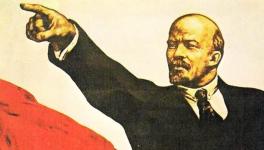Why Bertrand Russell is Relevant in Pandemic-Struck India
Bertrand Russell (May 1872-February 1970) was a polymath—a strange amalgam of a philosopher, humanist, conscientious objector, and mathematical genius. Yet, it was his expositions as a social philosopher that were read widely and feted by laymen.
Russell was a clinical monster when it came to popular fallacies; the most incisive and stimulating among 20th-century commentators. Reading him for the first time in the mid-1970s was momentous for me. The clarity of his thoughts captivated me, as did his piercing observations, that scythed through societal humbug, hypocrisy, claptrap and chicanery.
Over the years, whenever I confronted grave doubts, I pulled out Russell from my bookshelf and pored over him. Reading him was anodyne. The self-inflicted horrendous scenes unfolding in the nation have, willy-nilly, pulled me back to view things through the Russellian lens.
We need not go further than his 1950 Nobel Prize acceptance speech and his decalogue published in The New York Times in 1951.
First, a snapshot of the thoughts he expressed in his Nobel speech: “Virtue and morality play little part in political life, what drives instead is selfish desire… All human activity is prompted by desire. There is a wholly fallacious theory advanced by some earnest moralists to the effect that it is possible to resist desire in the interests of duty and moral principle. I say this is fallacious, not because no man ever acts from a sense of duty, but because duty has no hold on him unless he desires to be dutiful.”
Man differs from other animals in one important aspect, Russell says. Some desires are infinite and hard to gratify and make him restless even in Paradise. “The boa constrictor, when he has had an adequate meal, goes to sleep, and does not wake until he needs another meal. Human beings, for the most part, are not like this.” He notes that there are mainly four political desires that are hard to satisfy, “acquisitiveness, rivalry, vanity, and love of power”.
Rivalry, he says, is a much stronger motive, and vanity a “motive of immense potency” too. The love of power is greatly increased by the experience of power, while the man “actuated by love of power is more apt to inflict pain than to permit pleasure.”
“If you require a building permit, the petty official concerned will obviously get more pleasure from saying ‘No’ than from saying ‘Yes’,” he says, adding, “It is this sort of thing which makes the love of power such a dangerous motive.”
Condemnation, too, is a drug, like opium, which has to be taken in “continually stronger doses to produce the desired effect”, Russell says.
Is vanity also an outflow of narcissism, as we understand it in the present time? My friend-psychologist Veronica helps me better understand: Narcissism, too, is a personality disorder, she explains, like an antisocial personality disorder. Narcissists are obsessed with self-love, authoritative, extremely quick to anger, take offence at perceived slights, and so on. However, a person can have more than one personality disorder—such people lack empathy, condone violence, and also manipulate and deceive others.
Did the four-hour flash demonetisation move, or the same bespoke timeline for the March 2020 lockdown emanate from such an impulse? Did the 21-day battle against the Covid-19 pandemic, the banging of pots and pans, the showering of flowers from Indian Air Force aircraft, or the nine-minute lights-out at nine in the evening help beat back the Novel Coronavirus?
All I know is that these were not backed by science but its very opposite: abracadabra. Russell addresses such mumbo-jumbo too in his Nobel lecture. “If politics is to become scientific, and if the event is not to be constantly surprising, it is imperative that our political thinking should penetrate more deeply into the springs of human action.”
He addresses also the interwoven passions that human beings are regrettably prone to—irrational fear and hate. “It is normal to hate what we fear, and it happens frequently… Much that passes as idealism is disguised hatred or disguised love of power.”
Russell is even more searing in his Conway lecture, delivered in 1922, on “Free Thought and Official propaganda”. “Every man of science whose outlook is truly scientific is ready to admit that what passes for scientific knowledge at the moment is sure to require correction with the progress of discovery,” he said. Yet, it is in science alone that something approximating genuine knowledge can be found, “In science, where alone something approximating to genuine knowledge is to be found, men’s attitude is tentative and full of doubt. In religion and politics, on the contrary, though there is as yet nothing approaching scientific knowledge, everybody considers it de rigueur to have a dogmatic opinion.”
We have the bloodcurdling destiny of the nation sprawled out before us, and it has horrified the world. The blame for this lies in not choosing men “on account of fitness to do the work” Russell said, but based on whether “they flattered the irrational dogmas of those in power”.
Let me help with another aide-mémoire: students are being indoctrinated with assiduity through our school textbooks; the venerated pillars of our democracy are either somnolent or have completely collapsed. There was intense electioneering despite the pandemic, and in it came the ventriloquial catcall, “Didi, Ooo, Didi”. And, besides, the mainstream media loves eating mangoes.
Here are six of Russell’s ten commandments that fortify his relevance to our context:
-
Do not feel absolutely certain of anything.
-
Do not think it worthwhile to proceed by concealing evidence, for the evidence is sure to come to light.
-
When you meet with opposition… endeavour to overcome it by argument and not by authority, for a victory dependent upon authority is unreal and illusory.
-
Do not use power to suppress opinions you think pernicious, for if you do the opinions will suppress you.
-
Find more pleasure in intelligent dissent than in passive agreement.
-
Be scrupulously truthful, even if the truth is inconvenient, for it is more inconvenient when you try to conceal it.
Each of the aforesaid is missing in today’s culture of outrage. The truth leaps out from the bodies seen floating on the Ganga or buried along its banks. We get no truth but bald lies, no openness but shrouds, no action, mere optics and grandstanding, no intelligent dissent but obsequious agreement. The apotheosis of narcissism is complete.
To finally proclaim the meaning of Russell’s decalogue out loud, let me restate his thoughts first expressed in a celebrated essay, “A Free Man’s Worship”, in 1903. Steeped in florid Miltonian prose his words are blindingly reverberant.
“Brief and powerless is Man’s life; on him and all his race the slow, sure doom falls pitiless and dark. Blind to good and evil, reckless of destruction, omnipotent matter rolls on its relentless way; for Man, condemned today to lose his dearest, tomorrow himself to pass through the gate of darkness, it remains only to cherish… the lofty thoughts that ennoble his little day; disdaining the coward terrors of the slave of Fate… to preserve a mind free from the wanton tyranny… the world that his own ideals have fashioned despite the trampling march of unconscious power.”
Touché!
The author is a former civil servant. The views are personal.
Get the latest reports & analysis with people's perspective on Protests, movements & deep analytical videos, discussions of the current affairs in your Telegram app. Subscribe to NewsClick's Telegram channel & get Real-Time updates on stories, as they get published on our website.
























